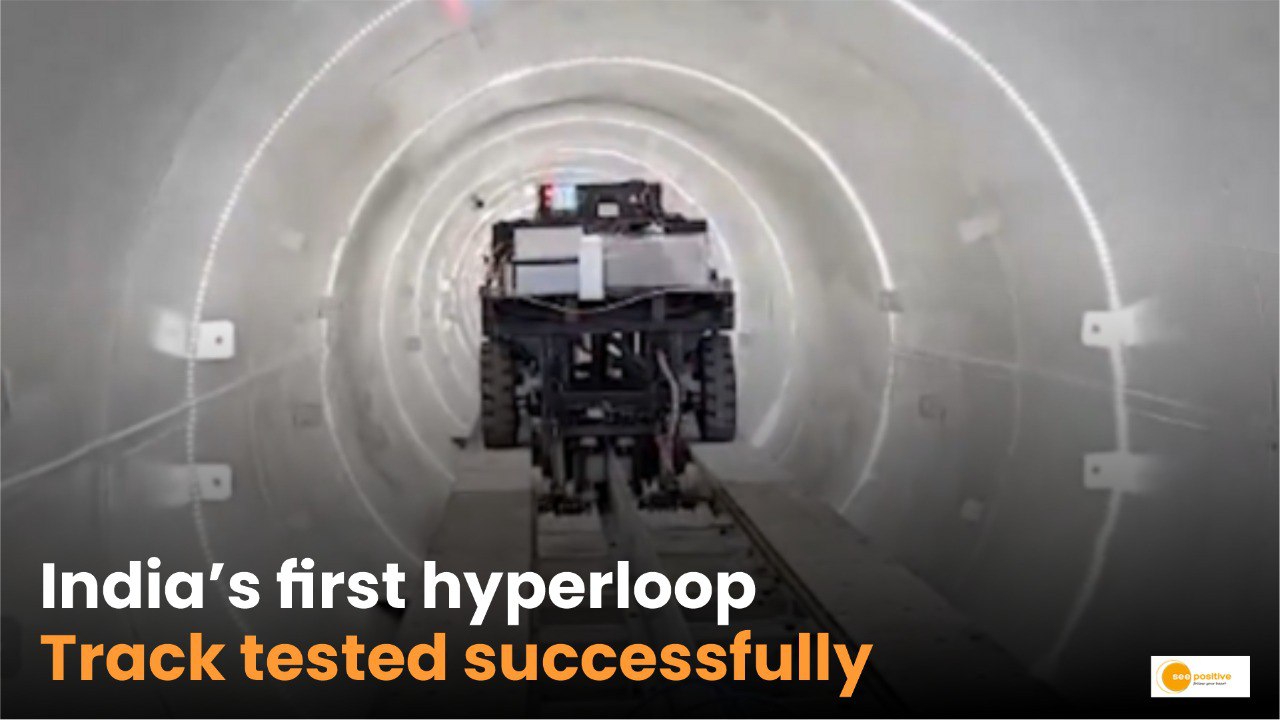India’s Hyperloop train project: Hyperloop technology is an exciting development that could revolutionize rail travel in the country. IIT Madras, in collaboration with the Ministry of Railways, has made a huge stride by developing the first hyperloop test track in Chennai. The 422-meter-long hyperloop test track serves as a crucial testing ground for hyperloop systems. This project is expected to dramatically improve transportation efficiency, cutting travel times drastically.
The government is supporting the development of the project, which aligns with India’s goal of modernizing infrastructure and boosting economic growth.
What is hyperloop train?
This involves transporting passengers or cargo in high-speed pods that travel through low-pressure tubes, enabling speeds that could surpass current rail, road, and even air travel. The pods travel through a near-vacuum tube, reducing air resistance to almost zero. This allows the pods to travel at extremely high speeds (potentially up to 1,000 km/h or more) without the drag that slows down conventional vehicles.
Hyperloop technology promises to significantly reduce travel times between cities by using magnetic levitation to transport pods at incredibly high speeds.
Pushing India’s Technological Ambitions
India has shown strong interest in being a global leader in innovative transportation solutions. This project is part of India’s larger efforts to modernize its infrastructure and offer faster, more sustainable modes of transport. The test track in Chennai is not only a symbol of India’s commitment to future technologies but also showcases the country’s readiness to invest in and adopt revolutionary systems like hyperloop. This achievement positions India as a potential leader in the global transportation sector, with the possibility of being one of the first countries to adopt commercial hyperloop systems in the future.
Economic and Environmental Benefits
Once operational, hyperloop technology could reduce travel time significantly between major cities, like Chennai and Bengaluru, which could be connected in under 30 minutes. This would reduce congestion, pollution, and fuel consumption while opening up new opportunities for businesses and tourism. However, it will be interesting to see how this technology is scaled, including the environmental, technical, and financial challenges that need to be overcome before it becomes mainstream.
Positive Takeaway
Hyperloop technology can help alleviate the pressure on India’s existing rail and road networks, reduce carbon emissions, and improve the overall travel experience by offering faster, safer, and more eco-friendly alternatives.


